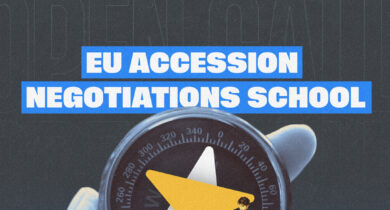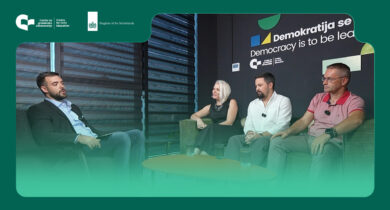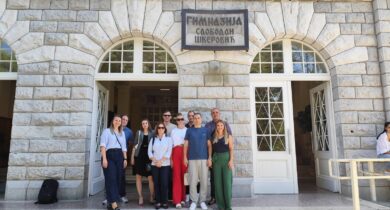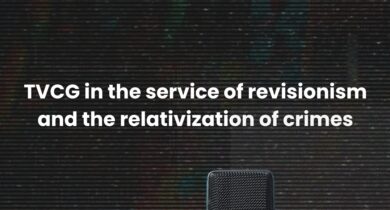Centre for Civic Education (CCE) announces a CALL FOR PARTICIPANTS for the EU ACCESSION NEGOTIATIONS SCHOOL The EU Accession Negotiations School is a unique educational programme that opens the door to the world of European integration for youth, activists, students, researchers, journalists, and young professionals. The programme is designed to provide a broad range of… »
Actual
NGOs call on the EU to engage regarding the implementation of media laws and the appointment of members to the Council of the Agency for Audiovisual Media Services
Media-focused NGOs submitted an appeal today to the Delegation of the European Union, urging its engagement in the implementation of media laws and the appointment of members to the Council of the Agency for Audiovisual Media Services (AVMS). Specifically, the NGOs called on the Head of the EU Delegation, Johan Sattler, to remind Montenegrin authorities… »
Security guards must be returned to schools immediately – children’s safety is not an issue to be postponed
The non-governmental organizations – Parents’ Association, Human Rights Action (HRA), and the Centre for Civic Education (CCE) – today sent a letter to the Ministry of Education, Science and Innovation, requesting an urgent public statement on whether the engagement of security guards in primary and secondary schools will continue during the 2025/2026 school year. This… »
Mandić and the Parliamentary Majority Obstruct Media Reforms – Montenegro’s EU Path at Risk
Non-governmental organizations active in the media sector submitted an initiative today to the President of the Parliament of Montenegro, urging him to contribute to the implementation of media laws and the appointment of members to the Council of the Agency for Audiovisual Media Services (AVMS). The NGOs, engaged in media-related issues, called on the President… »
RTCG and AVM Between Public Interest and Political Calculations
The independence of Radio and Television of Montenegro (RTCG), local public broadcasters, and the Agency for Audiovisual Media Services (AVM) is essential for safeguarding the public interest, yet political pressures continue to hinder their functioning. This was one of the conclusions of the PRODUCAST by the Centre for Civic Education (CCE), focusing on the media… »
Teachers and students need a bolder approach to the topics of the 1990s
High school students today are often not sufficiently familiar with the context of the tragic events of the 1990s, and their interest in these topics is limited. Therefore, it is important to address these issues through a scientific approach, facts, and a spirit of tolerance in order to prevent the risk of misinterpretation. This was… »
Tender for submission of offers for accommodation and conference services for the organization of a two-day event
Centre for Civic Education (CCE) announces a TENDER for submission of offers for accommodation and conference services for the organization of a two-day event The Centre for Civic Education (CCE), within the framework of the project “Together for LGBTIQ+ Equality”,financially supported by the European Commission and co-financed by the Ministry for Regional-Investment Development and Cooperation… »
Attacks on Gorjanc Prelević Documented by Columbia University
In the latest edition of its regular review on the state of freedom of expression, Columbia University Global Freedom of Expression has included the case of the smear campaign against Tea Gorjanc Prelević, Executive Director of the Human Rights Action (HRA) and one of the most consistent human rights defenders in Montenegro. In one section… »
Stop Hate! Le ta ndalojmë urrejtjen!
We strongly condemn the violent disruption of the screening of the film “Roda” by Albanian director Isa Qosja, which took place last night as part of the Džada Film Festival in Zabjelo, Podgorica. According to eyewitness reports, a group of aggressors stormed the screening and interrupted it simply because the film was in the Albanian language. This act… »
TVCG in the service of revisionism and the relativization of crimes
A group of non-governmental organizations and civic activists today submitted a complaint to the Ombudsman of RTCG regarding the programme “Loudly: The Face and Reverse of Controversial Monuments in Montenegro” broadcast on 1 September. The complaint was submitted by: Media Center, Human Rights Action (HRA), Centre for Civic Education (CCE), Centre for Women’s and Peace Education ANIMA,… »










